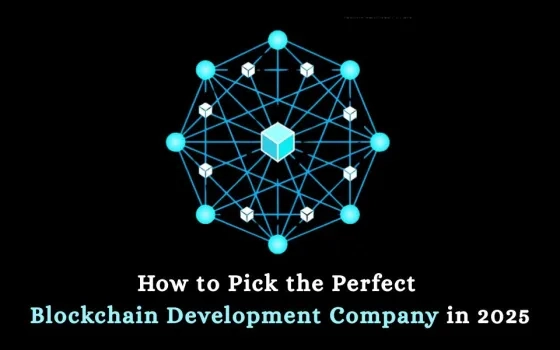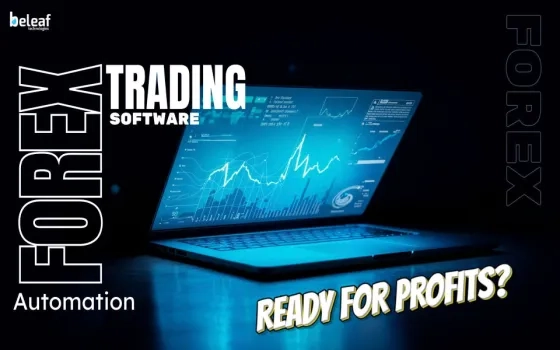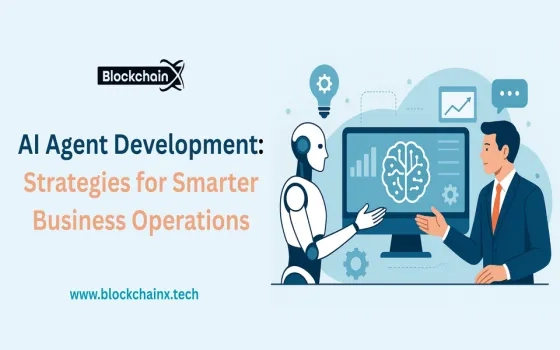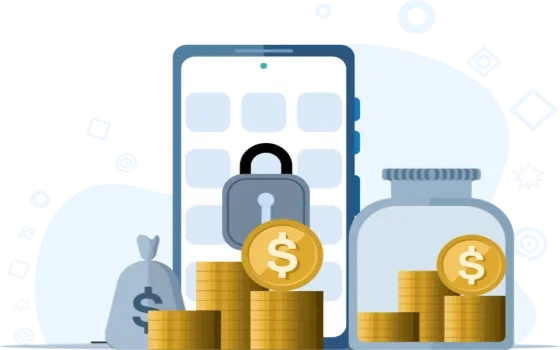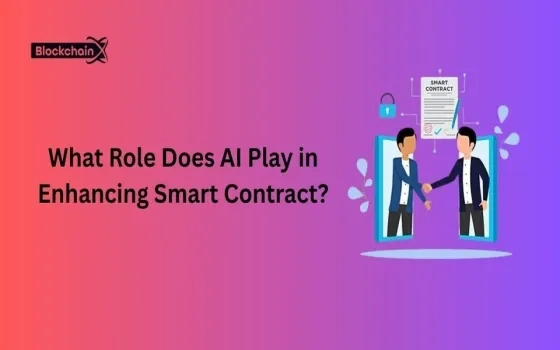Blockchain is no longer simply a current tech phrase, it is a true game changer. Either it's powering DeFi platforms, NFTs or assisting multinational organisations in tracking items through supply chains, blockchain is slowly revolutionising sectors by making them more transparent, safe and efficient.
But let's be honest: Establishing a blockchain project is no easy undertaking. A good concept itself is insufficient. You may first require a development team that understands blockchain and knows how to transform your idea into a working product.
That is why selecting the appropriate blockchain development company is so important. In the following article, we'll take you through the essential factors to consider when selecting the best partner for your project in 2025.
1. Define your business goals and technical demands
Before you start looking for a development partner, spend the time to describe:
- The kind of blockchain project (dApp, token, exchange, DAO, NFT platform, etc.)
- Your sectors such as finance, gaming, medical care and logistics
- The problem you are solving with blockchain
- Your budget and plan
- You should be clear in selecting the type of blockchain for your business.
- Any regulatory considerations?
- A complete understanding of your needs will help you to more effectively evaluate organisations that specialise in your specific area of interest.
2. Search for blockchain-specific expertise
Blockchain is extremely specialised. A standard software business might not have the level of understanding required to develop a safe and efficient blockchain application. Ensure the company:
- Blockchain developers must have experience in smart contracts, consensus mechanisms and token standards
- Experience with major platforms such as Polkadot, Ethereum, Polygon, Solana, Binance Smart Chain, and Hyperledger is essential.
- May talk about Layer 1 against Layer 2 solutions and provide platform suggestions.
- Has been involved in main network deployments, rather than only testnet or demo projects.
Please do not hesitate to request examples of code or an explanation of previous projects.
3. Look throughout their portfolio and case studies
A company's portfolio provides insight into its practical abilities. Search for:
- They have addressed a variety of blockchain use cases.
- Successful installations and demonstrable results
- Design-to-launch execution (not just limited participation)
- Clients from your industry or region
- Well-documented case studies indicate that the organisation knows both the technological aspects and the business logic needed to succeed in blockchain initiatives.
4. Evaluate their smart contract capabilities
Most blockchain applications utilise smart contracts as their underlying concept. Faulty or unregulated smart contracts might cause massive losses. So evaluate:
- Make sure if they use languages like solidity, vyper or rust
- Whether they conduct unit testing, systematic verification, and gas optimisation
- How they manage upgradeable smart contracts and proxy patterns.
- Enquire whether they collaborate with external auditors or provide internally smart contract audit services.
5. Prioritise security practices
Security is not optional on blockchain. The development partner should:
- Perform frequent security audits.
- Follow the OWASP and blockchain-specific safety rules.
- Understand methods of attack such as reentrancy, flash loan assaults and front-running.
- Establish efficient procedures for cold and hot wallet connectivity (for exchanges or wallets).
- Enquire about any previous security incidents they were involved with and how they were addressed.
6. Understand their technology stack
The blockchain development business should provide a comprehensive technology stack, which includes:
- Backend: The backend languages, like Python, Java, and Node.JS are used for the proper functioning of underlying databases.
- Front-end: Know about their front-give up language, which incorporates Angular, Vue and React
- Blockchain protocols: Make sure the blockchain protocols consist of Hyperledger, Ethereum, BSC, Polygon, Solana and Avalanche.
- Tools and frameworks: They need to additionally know about frameworks and tech like Moralis, Web3.Js, Ethers.Js, Hardhat, and Truffle.
- Databases: Platforms like IPFS, PostgreSQL, MongoDB, and Firebase make certain your app can develop and keep your data secure.
- Development Operations: Kubernetes, Docker, and CI or CD tools
- Tools for monitoring: OpenZeppelin Defender, delicately and MongoDB
- DevOps: Docker, Kubernetes, and CI/CD tools
- Monitoring Tools: Kindly, OpenZeppelin Defender
A varied stack demonstrates the team's ability to adapt and scale in response to your demands.
7. Enquire about their Development Process
An expert organisation should use a structured strategy like Agile or Scrum. They should provide:
- Weekly timetables and demonstrations
- Version control (for example, GitHub/Bitbucket access).
- Documenting APIs and smart contracts
- Testnet installation for user acceptability testing.
- Bug-tracking systems
- A defined approach results in less unanticipated and more predictable delivery.
8. Analyse Communications and Project Management
The role of communication speaks here for analyzing plans, technical requirements and problems related to project delivery. Determine if the company:
- Designates a designated project manager.
- Delivers weekly status reports and session updates.
- Provides 24/7 or timezone-aligned help.
- Request a demo call to discover how they communicate complicated technical ideas.
- An excellent companion simplifies instead of confusing.
9. Check Client Reviews and Ratings
Reviews on the internet might help to confirm a company's authenticity. Check on:
- Clutch
- Good Firms
- Trustpilot
Pay particular attention to evaluations that discuss dependability, communication, and post-launch assistance. A 4.8 rating review with extensive criticism is generally more persuasive than a 5 star rating without comments.
10. Explain Pricing, Contracts, and Intellectual Property Ownership
- Consider the price structure openly.
- Fixed prices (ideal for short-term, clear projects).
- Hourly or time-and-materials (flexible for continuous employment)
- Dedicated group (long-term development and scaling)
Also, enquire about:
- Intellectual Property Ownership
- The source code access
- Termination Conditions
- Nondisclosure agreements and confidentiality agreements
Without a formal contract that specifies payment conditions and objectives, don't proceed.
11. Assess their Problem-Solving Strategy
Blockchain development frequently includes new areas. Throughout the consultation, find out how the company:
- Manages technological bottlenecks or malfunctions
- Creates a decentralised system.
- Optimises petrol costs for smart contracts.
- Combines data from other chains through oracles.
- Provides layer 2 or sidechain alternatives for scalability.
Their responses will offer you an idea about the way they think and adjust to difficulties.
12. After-launch support and scalability
Your blockchain process does not end with deployment. Make sure the business provides:
- Bug fixing and oversight for smart contracts
- Feature improvements and software upgrades
- Security updates and re-audits
- Analytics tools for tracking usage.
- Community-building capabilities (for blockchain-based community initiatives).
Also, enquire about how they enable scaling, either through Layer 2 connections, splitting, or enhanced design.
13. Signs to Look Out For
Avoid the following companies:
- Cannot give projects from real life or client references.
- Avoid providing source code access.
- Overpromise: quick response at a low cost.
- Lack of sufficient recordkeeping.
- Have no security auditing experience.
- Avoid signing contracts or NDAs.
14. Choose a partner, not just a vendor
A partnership is required for developing blockchain technology. Select a company that:
- Is active in making ideas
- Supports your vision, yet respectfully criticises ideas.
- Do you have a long-term strategy for your platform?
- Matches with your company environment and growth attitude.
You're creating a partnership that might last for years, not just employing developers.
Conclusion
Choosing the proper blockchain development company is a prudent option that necessitates a comprehensive assessment of technical expertise, entrepreneurial skills, and communication abilities. A qualified partner will provide the greatest phase of safety, scalability and user interface while not only producing what you desire but also providing advice on what your project requires.
You will be better able to make an informed decision if you consider subject competence, previous projects, communication procedures, pricing structures, and long-term support.



